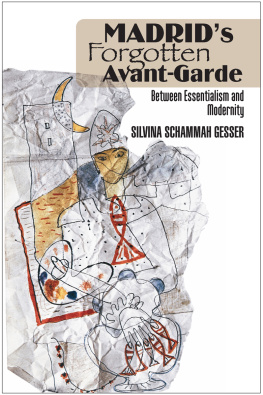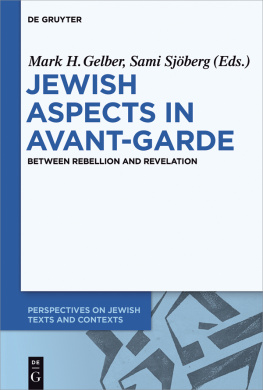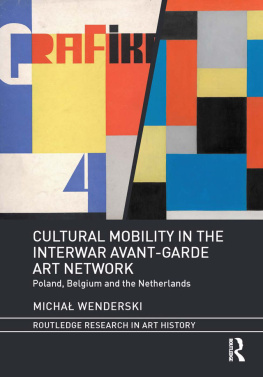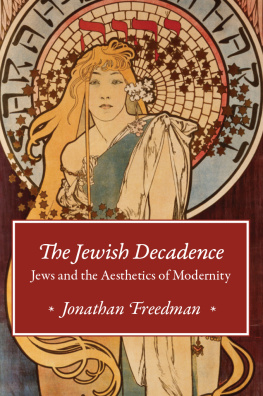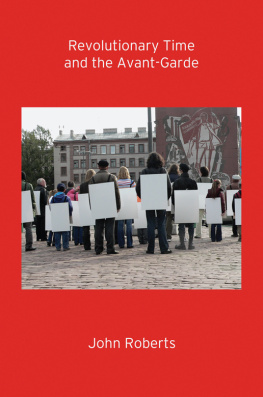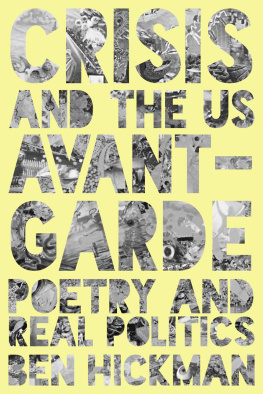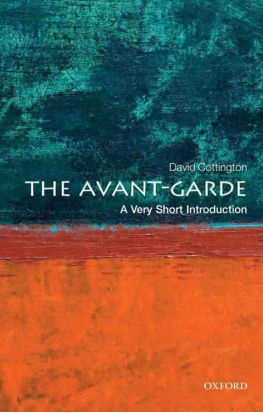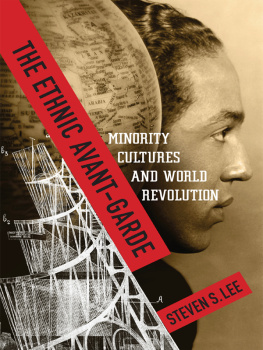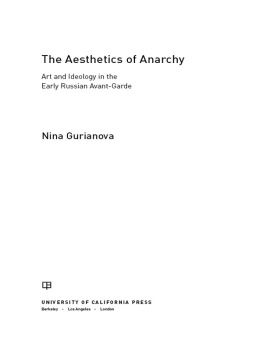Far from being an intellectual backwater, the Madrid that is presented here was a scene of intense and passionate debates among highly committed thinkers and artists that linked aesthetic, cultural and political questions. Ideas and their intellectual authors also mattered; not just because they addressed deep issues about Spanish identity and modernity but because they were also at the heart of political conflict and, ultimately, civil war. Schammah Gesser succeeds marvellously in recapturing this world and its participants, examining the basis of their ideas and their disputes. What is also striking is their continued resonance to contemporary Spain and to the nature of modernity in the contemporary world. Tim Rees, University of Exeter, Series Editor of Sussex Studies in Spanish History
Madrids Forgotten Avant-Garde explores the role played by artists and intellectuals who constructed and disseminated various competing images of national identity which increasingly divided Spanish society prior to the Civil War. The convergence of modern and essentialist discourses and practices, especially in literature and poetry, in what is conventionally called in Spanish letters The Generation of 27, created fissures between competing views of aesthetics and ideology that cut across political affiliation.
Silvina Schammah exposes the paradoxes facing Madrids cultural vanguards, as they were torn by their ambition for universality, cosmopolitanism and transcendence on the one hand, and by the centripetal forces of nationalistic ideologies on the other. Taking upon themselves roles as popularizers and disseminators of radical positions and world-views first elaborated by the young urban intelligentsia, the Madrilenian vanguards made the most of their avant-gardist skills to incorporate diverse identities in their cultural constructions and discourses. These were to have very real and tragic consequences as political, intellectual and aesthetic lines polarized in the years that preceded the Spanish Civil War.
Cover illustration: Portrait of Salvador Dal, 1927. Mixed technique on paper, 29 x 18 cm. Reproduced by permission of the Federico Garca Lorca Foundation.
Silvina Schammah Gesser specializes in the cultural and intellectual history of early twentieth-century Spain. Her more recent research has focused on the role of culture and the arts during Francoism and on issues of memory, representation, and museum practices in democratic Spain. Dr. Schammah lectures at the Department of Romance and Latin American Studies and is a fellow researcher at the Harry S. Truman Institute for the Advancement of Peace at the Hebrew University of Jerusalem.
Sussex Studies in Spanish History
General Editor: Nigel Townson, Universidad Complutense, Madrid
Consultant Editor: Jos lvarez-Junco, Universidad Complutense, Madrid
Advisory Editors: Pamela Radcliff, University of California, San Diego Tim Rees, University of Exeter
Jos lvarez-Junco, The Emergence of Mass Politics in Spain: Populist Demagoguery and Republican Culture, 18901910.
Tom Buchanan, The Impact on the Spanish Civil War on Britain: War, Loss and Memory.
Andrew Dowling, Catalonia since the Spanish Civil War: Reconstructing the Nation.
Hugo Garca, The Truth about Spain!: Mobilizing British Public Opinion, 19361939.
Irene Gonzlez Gonzlez, Spanish Education in Morocco, 19121956: Cultural Interactions in a Colonial Context.
Patricia Hertel, The Crescent Remembered: Islam and Nationalism on the Iberian Peninsula.
Silvina Schammah Gesser, Madrids Forgotten Avant-Garde: Between Essentialism and Modernity.
David Messenger, LEspagne Rpublicaine: French Policy and Spanish Republicanism in Liberated France.
Javier Moreno-Luzn, Modernizing the Nation: Spain during the Reign of Alfonso XIII, 19021931.
Inbal Ofer, Seoritas in Blue: The Making of a Female Political Elite in Francos Spain.
Mario Ojeda Revah, Mexico and the Spanish Civil War: Domestic Politics and the Republican Cause.
Elizabeth Roberts, Freedom, Faction, Fame and Blood: British Soldiers of Conscience in Greece, Spain and Finland.
Manuel lvarez Tardo and Fernando del Rey Reguillo (eds.), The Spanish Second Republic Revisited.
Nigel Townson, The Crisis of Democracy in Spain: Centrist Politics under the Second Republic, 19311936.
Nigel Townson (ed.), Is Spain Different?: A Comparative Look at the 19th and 20th Centuries.
Published in association with the Caada Blanch Centre for Contemporary Spanish Studies and the Catalan Observatory, London School of Economics.
A full list of titles in the series is available on the Press website.
Copyright Silvina Schammah Gesser, 2015.
Published in the Sussex Academic e-Library, 2015.
SUSSEX ACADEMIC PRESS
PO Box 139
Eastbourne BN24 9BP, UK
and simultaneously in the United States of America and Canada
All rights reserved. Except for the quotation of short passages for the purposes of criticism and review, no part of this publication may be reproduced, stored in a retrieval system or transmitted in any form or by any means, electronic, mechanical, photocopying, recording or otherwise, without the prior permission of the publisher.
British Library Cataloguing in Publication Data
A CIP catalogue record for this book is available from the British Library.
Library of Congress Cataloging-in-Publication Data
Schammah Gesser, Silvina.
Madrids forgotten avant-garde : between essentialism and modernity / Silvina Schammah Gesser.
pages cm. (Sussex studies in Spanish history)
Includes bibliographical references and index.
ISBN 9781-84519-384-3 (hb : acid-free paper)
ISBN 978-1-78284-241-5 (e-pub
ISBN 978-1-78284-242-2 (e-mobi)
ISBN 978-1-78284-243-9 (e-pdf)
1. Literature, ExperimentalSpainHistory and criticism. 2. Avant-garde (Aesthetics)SpainMadridHistory20th century. 3. Literature and societySpainMadridHistory20th century. 4. Madrid (Spain) Intellectual life20th century. I. Title.
PQ6073.E94S33 2015
860.911dc23
2015000029
This e-book text has been prepared for electronic viewing. Some features, including tables and figures, might not display as in the print version, due to electronic conversion limitations and/or copyright strictures.
Contents
C HAPTER O NE
Identity Crisis and Reverence for Modernity
C HAPTER T WO
Alternative Images of Modernity
C HAPTER T HREE
Primorriverismo, an Authoritarian Undertaking
C HAPTER F OUR
The Creation of Madrids Avant-Garde
C HAPTER F IVE
The Emergence of an Urban Intelligentsia
C HAPTER S IX
The People in Rafael Albertis Proletarian Vision of Culture
C HAPTER S EVEN
The Nation in Ernesto Gimnez Caballeros Aestheticization of Politics
Index
Series Editors Preface
Spain has tended to figure only at the margins of twentieth century intellectual history with just a few Spaniards gaining international reputations. Some, such as the philosophers Jos Ortega y Gasset and Miguel Unamuno, largely did so only during their own lifetimes. Others, such as the poet and playwright Federico Garca Lorca or the painters Pablo Picasso and Joan Mir, have achieved more enduring fame. But above all, Spain itself has not been widely recognised as a significant centre of new intellectual activity and achievement in the modern era; and certainly not in comparison with the new intellectual and artistic movements associated with France, Germany, Austria, Italy and Russia. None of the great -isms of the last century had a specifically Spanish connection, even if some Spaniards were part of movements like surrealism or futurism. In addition, the long shadow cast by the Franco regime, with its hallmarks of intellectual and artistic repression and conformity, reinforced a sense that any vibrancy and eclecticism that had existed in the world of ideas in Spain must have been limited and had been thoroughly snuffed out.
Next page
